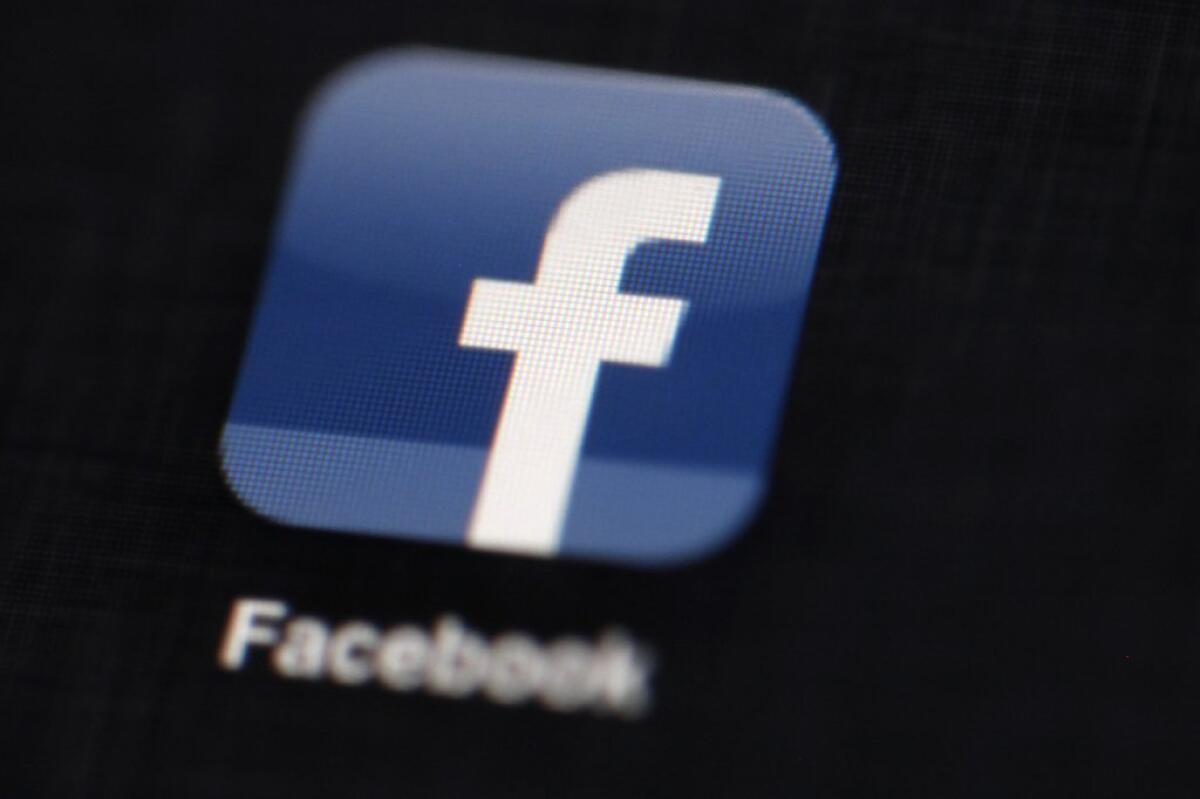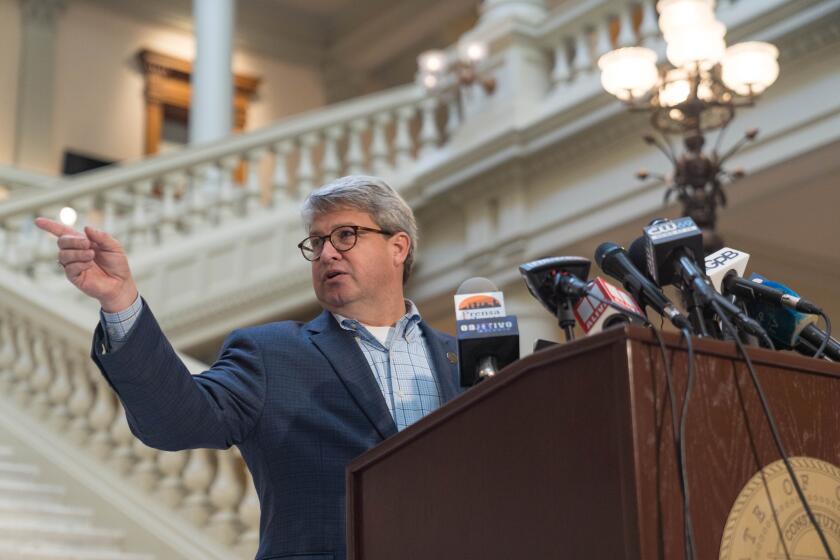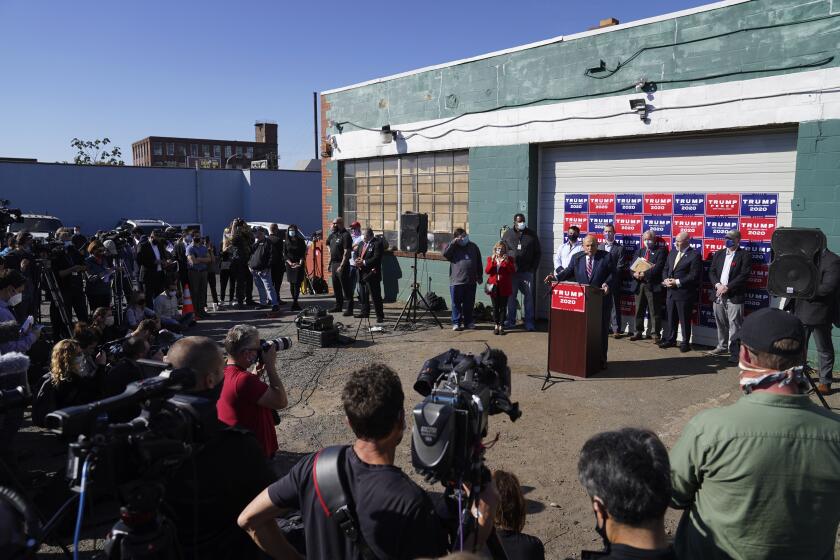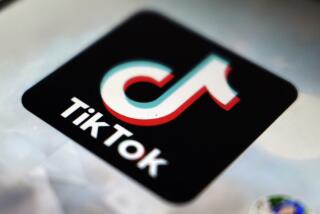Facebook and Google quietly extend bans on political advertising

- Share via
Facebook and Google have quietly extended their bans on political advertising beyond their planned one-week post-election moratorium, as President Trump and his supporters continue to use the platforms to allege — without evidence — that President-elect Joe Biden’s victory is invalid.
Facebook said in an email to advertisers that they should “expect this temporary pause to last another month.” However, “there may be an opportunity to resume these ads sooner,” the social media giant said.
The extensions come as online momentum builds around Trump’s unfounded claims that widespread voter fraud enabled his Democratic opponent to “steal the election,” which he said he would otherwise have won.
Biden’s staff has said that Facebook, in particular, is not doing enough to prevent the “Stop the Steal” narrative from gaining traction and that the platform has failed to stamp out calls for violence. On Monday, Biden campaign spokesman Bill Russo tweeted that Facebook was “shredding the fabric of our democracy.”
As Biden leads Trump in Georgia, Republicans in the secretary of state’s office rebut accusations of fraud from their political bedfellows.
Facebook Inc. Chief Executive Mark Zuckerberg has long refused to fact-check political advertising on the basis that private sector companies should not be the “arbiter of truth.” However, after pressure from critics, the company announced shortly before the election that it would block new political ads in the week leading up to election day and all political ads for at least a week afterward.
In September, Alphabet Inc.’s Google told advertisers that it would enact a ban for at least seven days after the election and would review the situation on a weekly basis after that, according to Axios.
Google confirmed that the blackout was still in effect, but it would not share further details on when it might lift the ban.
Facebook said in an email to advertisers Wednesday morning that “while multiple sources have projected a presidential winner, we still believe it’s important to help prevent confusion or abuse on our platform.” It said it would notify them when the ban was lifted.
Several Trump officials, aides and allies say the legal strategy to challenge Joe Biden’s victory is more about providing the president with an offramp for a loss he can’t quite grasp than about changing the election’s outcome.
Advertisers and experts have mixed views on when the ban should ease. Some have called for the social media giants to keep political advertising disabled until Trump concedes or until the election result is certified so the president can’t use the tools to target people with false claims.
Others have argued that political advertising should be reinstated, especially because it’s affecting candidates in Georgia, where there will be a Jan. 5 runoff election for two U.S. Senate seats — contests that are likely to determine whether Republicans or Democrats control the chamber.
The extended ban on political ads is “terrible news for anyone who wants to use an election victory to build grass-roots power [and] launch a campaign or organizing effort for 2021 or 2022,” said Eric Reif, managing director of progressive campaigns consulting firm EStreet Group.
The uncertainty comes as the social media platforms grapple with a rising tide of post-election misinformation. Last week, Facebook invoked emergency measures to make it harder for users to share posts that contained misleading information and restricted those posts’ circulation.
Separately on Tuesday, the company published a statement defending itself against allegations from left-wing critics that its algorithm promoted provocative content and misinformation, often resulting in right-wing pundits going viral. It also said that political content made up only about 6% of what U.S. users saw on the platform, and that its emergency measures remained in place.
Meanwhile, Google’s YouTube has been accused of allowing certain misinformation to stay on its platform.
© The Financial Times Ltd. 2020. All rights reserved. FT and Financial Times are trademarks of the Financial Times Ltd. Not to be redistributed, copied or modified in any way.








